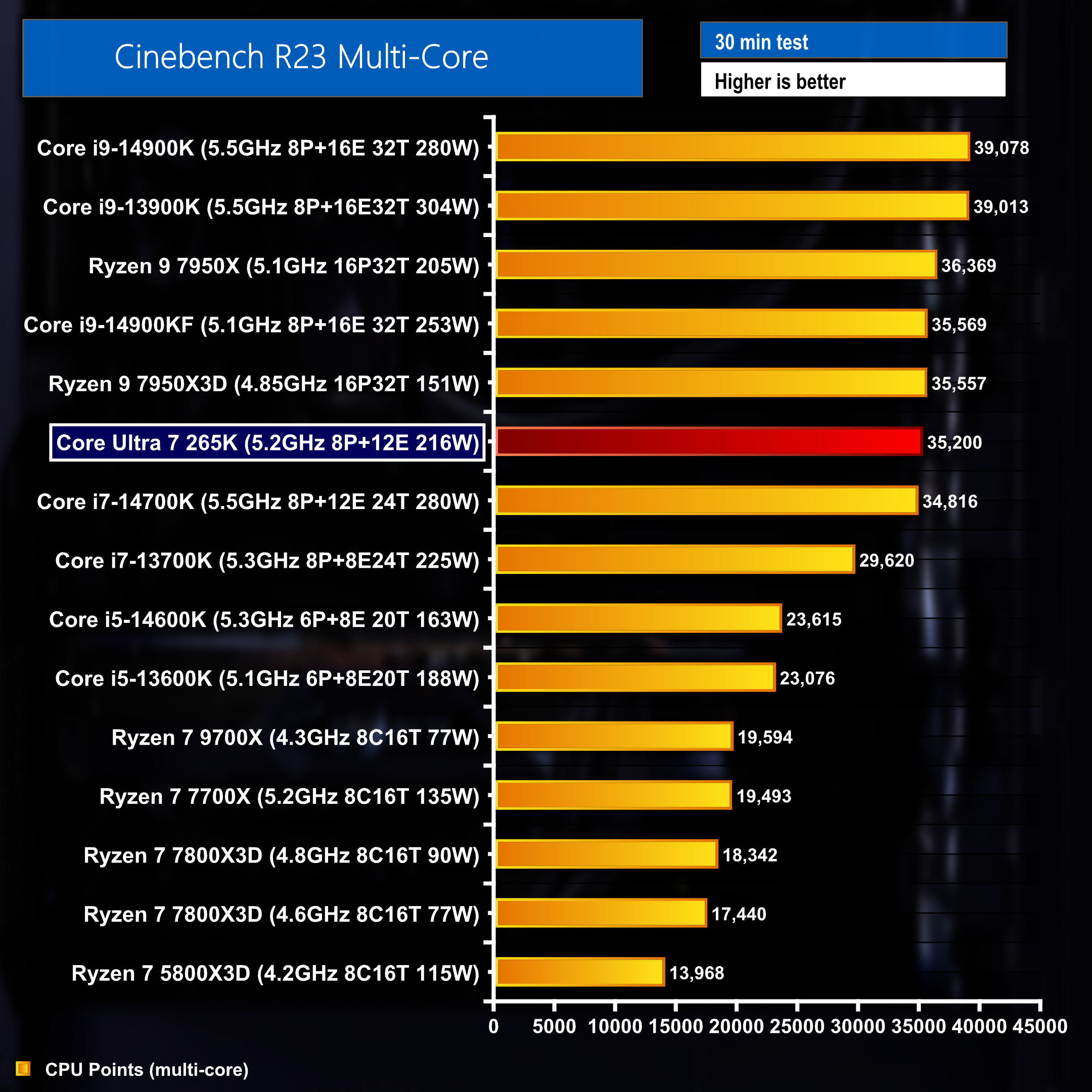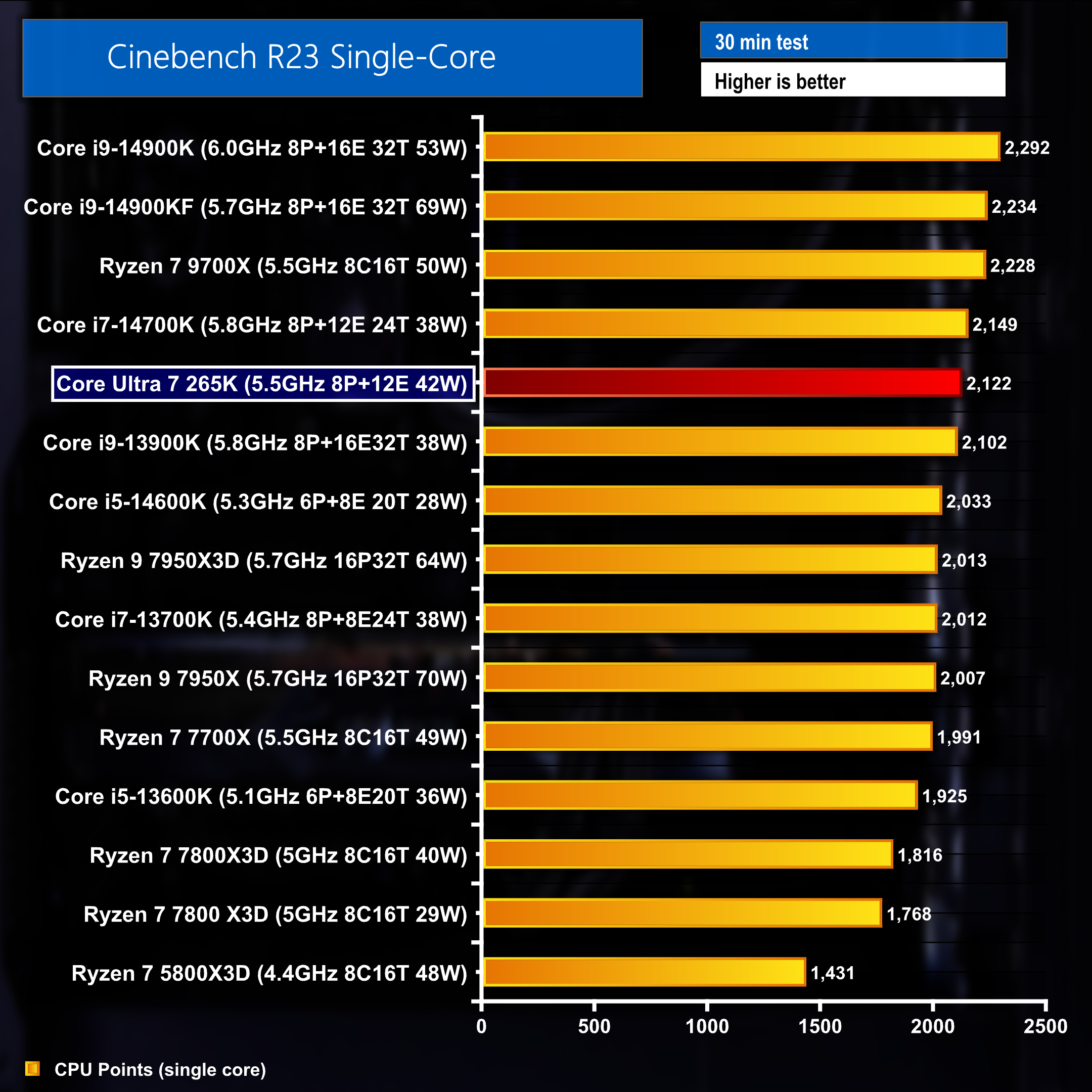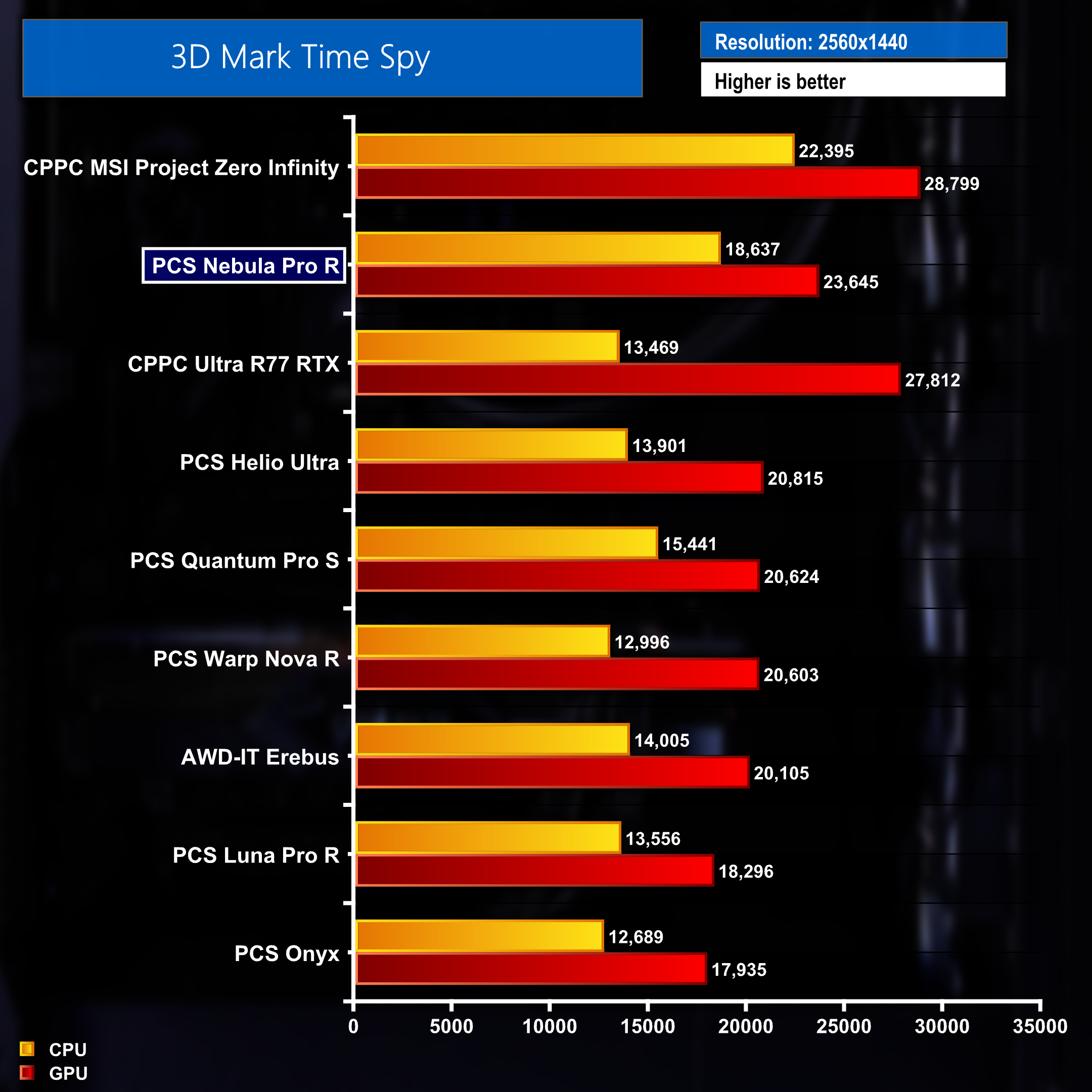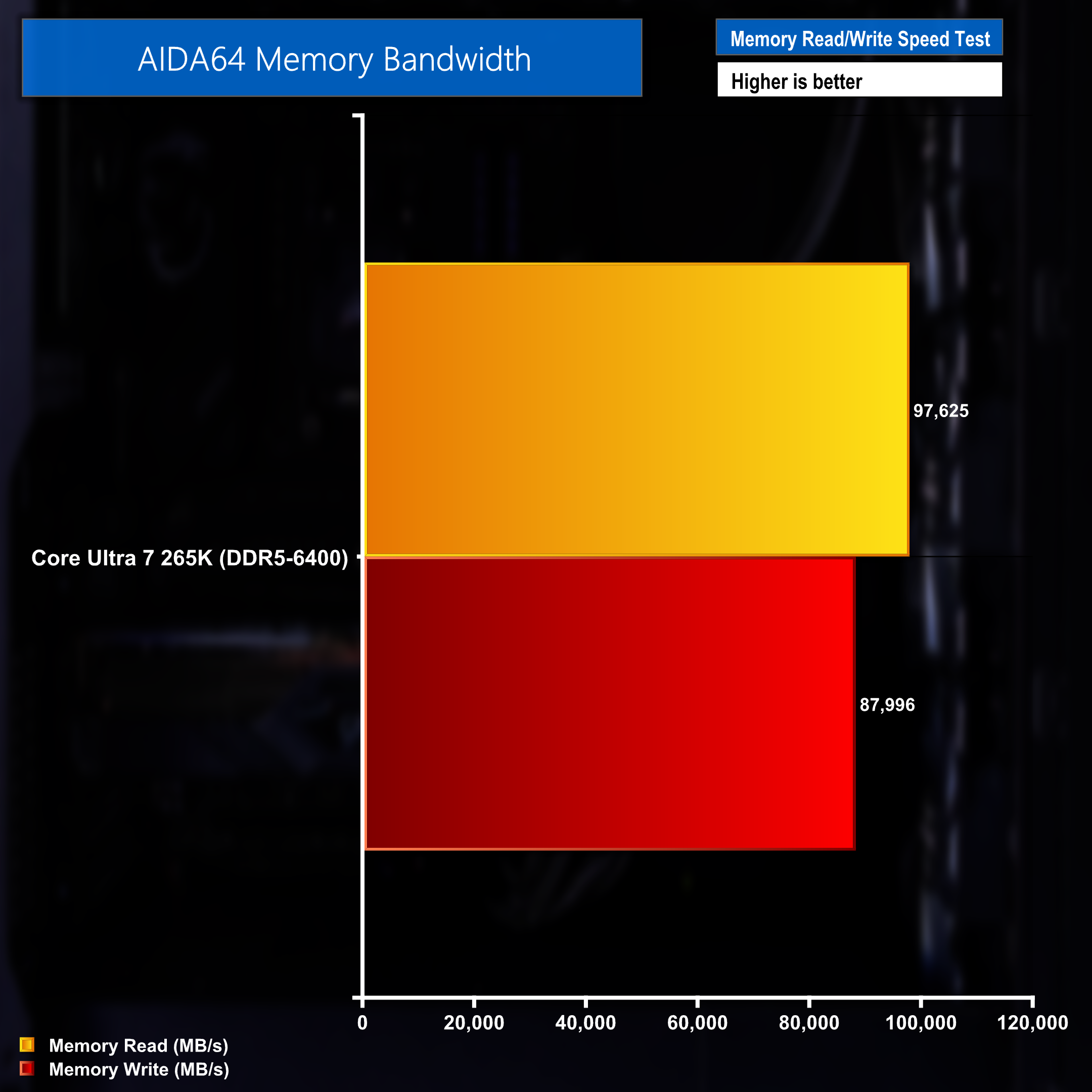After running 3 30 minute Cinebench multicore benchmarks – the average score recorded by the Nebula Pro R was 35,200 points – putting it just above the i7 14700K and some way ahead of the 13700K, while using less power. A decent result when considering the day to day performance of the CPU but not the sort of generational gains that we’d expect to see from the latest hardware from Intel
The same 3 run average score from a 30 minute singlecore Cinebench R23 benchmark resulted in a score of 2122 points – landing the 265K in 5th place overall – sitting just underneath the 14700K and just above the last-gen 13900K.
Again, decent performance, but nothing special when looking at previous generation Intel processors.
Looking at performance when measured with 3D Mark Time Spy then, which at first glance looks like a convincing result for the Nebula Pro R. It finished second overall when ordering the chart by the CPU score. Recording a result of 18,637 points
GPU score was a little less convincing though, the 4070 Ti Super scored 23,645 points, putting it some way behind the 4080 Super systems on the chart – which is to be expected, but that result from the Ultra R77 RTX, especially when it costs just £200 more is compelling.
CPU score is a little way off on that Ultra R77 RTX system, but the 7800X3D is known for scoring low in synthetic benchmarks like this and real world gaming performance would paint a very different picture.
Measuring memory speed and performance with AIDA64 resulted in read speeds of 97,625MB/s and write speeds of 87,996MB/s from the Corsair Dominator Titanium memory.
 KitGuru KitGuru.net – Tech News | Hardware News | Hardware Reviews | IOS | Mobile | Gaming | Graphics Cards
KitGuru KitGuru.net – Tech News | Hardware News | Hardware Reviews | IOS | Mobile | Gaming | Graphics Cards






